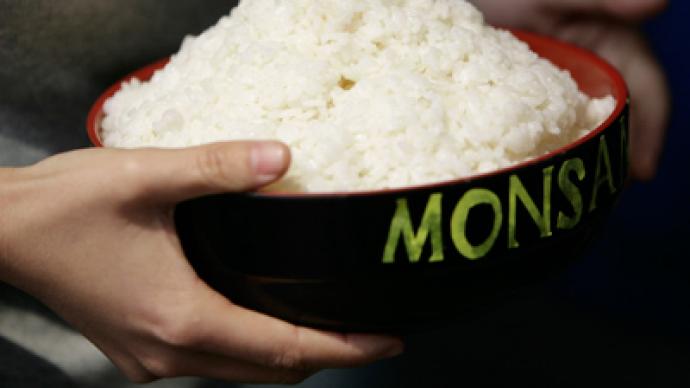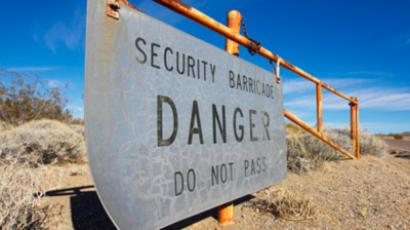Monsanto threatens to sue the entire state of Vermont

Lawmakers in Vermont are looking to regulate food labels so customers can know which products are made from genetically modified crops, but agricultural giants Monsanto say they will sue if the state follows through.
If the bill in question, H-722 (the “VT Right to Know Genetically Engineered Food Act”) passes the state Senate and House, manufacturers will be required to label products that are created either partially or in full from a genetically modified organism, or GMO. Such man-made crops have become a trademark of the billion-dollar Monsanto corporation, and in the past the company has gone to great lengths to keep themselves the number-one name in American agriculture, even if those profits are made possible from playing God. Monsanto is going mad over the proposal, however, which would also make them unable to label their productions as “natural,” “naturally made,” “naturally grown” or “all natural,” if, in fact, they are not. For the corporation, it would seem that moving products and making money is much more of a worthwhile venture than telling its customers what exactly they are consuming. With Vermont legislators now standing in the way of what could mean even more money for Monsanto, the company says they will sue the state if H-722 is approved. Now in fear of a lawsuit in the future, lawmakers in Vermont have put a hold on any future voting regarding the bill. If history is any indication, Monsanto is more than likely to have their way and win yet another battle.Monsanto is no stranger to the American legal system and have forced competing farm after farm to be shut down or bought out by bringing lawsuits against the little guy throughout their history. Between 1997 and 2010, Monsanto’s legal team tried to file nearly 150 lawsuits against independent farmers, often for allegations that their patented GMO-seeds had somehow managed to be carried onto unlicensed farms. Often those farms have been unable to fight against Monsanto’s mega-lawyers and have been forced to fold in response. The Organic Seed Growers and Trade Association tried taking Monsanto to court earlier this year to keep them from following similar suits, but a Federal District Court judge in Manhattan shut down their plea. The group has since filed an appeal.Regardless of if the Organic Seed Growers and Trade Association’s appeal will be granted, Monsanto is making waves in Vermont where they hope to continue creating GMO products and pushing them to consumers without warning. Between state lawmakers putting their vote on hold and past precedents, Monsanto looks more than likely to win their latest battle, though. Back in 1994, Vermont tried to keep dairy corporations from marketing milk made from cows injected with the Bovine Growth Hormone, citing incidents where the rBGH had been tied to cases of cancer. Monsanto was victorious in that battle and numerous others in the years since.














